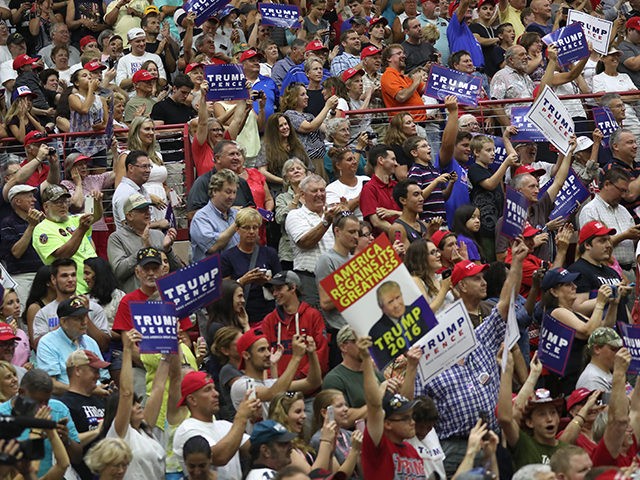Matt Taibbi writes in Rolling Stone magazine that the Democrats’ embrace of globalist neoliberal policies – in particular Bill Clinton’s signing of NAFTA – have provided an opening for Republican nominee Donald Trump to refashion the GOP as the party fighting for the “rational self-interest” of American workers whose wages have stagnated from decades of globalist trade policies.
The Democratic Party leaders have been fervent believers in the globalization religion since the late Eighties, when the braintrust at the Democratic Leadership Council made a calculated decision to transform the party from one that depended largely on unions for financial and logistical support to one that embraced corporate objectives, in particular free trade.
When he signed NAFTA into law in 1993, Bill Clinton laid out a utopian vision of how free trade would work. “We have the opportunity to remake the world,” he said, boldly.
More trade agreements, he said, would create a world that would not only be more prosperous all over, but freer and more able to serve as a market for our exports.
“We will press for workers in all countries to secure rights that we now take for granted, to organize and earn a decent living,” he said.
Critically, Clinton promised that free-trade agreements would emphasize new environmental standards, would expand the rights of workers in signatory countries, that we would not trade with countries that employed subsidies or tariffs against us, and that displaced domestic workers would eventually see gains after being retrained and redeployed for new jobs that would eventually appear to replace the lost ones.
“To the men and women of our country who were afraid of these changes,” Clinton said, “the gains from this agreement will be your gains, too.”
It was never articulated this way, exactly, but the basic promise of free trade was that the American middle class would experience temporary losses that over time would be balanced out by increased growth worldwide.
It was trickle-down economics, only repackaged with an international spin: After a long trip around the world, the wealth eventually gets back to you.
Twenty-three years later, we see how all of this has turned out. There have been some improvements in the economic condition of foreign workers.
But we never excluded politically oppressive regimes from free-trade deals, never made sure that trade partners weren’t also massive human rights violators, never seriously worried about environmental enforcement. Mostly, we just made cheap, un-free foreign labor available to Western manufacturers.
Even a onetime die-hard NAFTA cheerleader like staunch Clinton supporter Paul Krugman, who once compared free trade’s critics to the anti-evolutionist followers of William Jennings Bryan at the Scopes Monkey Trial, now admits that the case for “ever-freer” trade is a “scam”:
“The elite defense of globalization is basically dishonest: false claims of inevitability, scare tactics (protectionism causes depressions!), vastly exaggerated claims for the benefits of trade liberalization and the costs of protection, hand-waving away the large distributional effects that are what standard models actually predict.”
Like Marxism, globalization is a borderless utopian religion. Its adherents almost by definition have to reject advocacy for the citizens of one country over another. Just as “Socialism in One Country” was an anathema to classic Marxists, “prosperity in one country” is an anathema to globalists, no matter what their politicians might say during election seasons.
If you bring up the destruction of the American middle class, pro-globalization adherents will point to facts like the rising fortunes of those hundreds of millions of Chinese workers who are now supposedly above the World Bank definition of poverty, making more than $1.90 a day.
[…]
They want even American voters to focus on the good news of incrementally increased wages abroad, forgetting that American workers never signed up for a plan to disenfranchise themselves so that workers in China or India could earn a few quarters more per day. Moreover, they certainly didn’t elect leaders to push such policies.
The problem with all of this is that the Democrats went so far in the direction of advocacy for the global religion that they made something as idiotic as the rise of unabashed nativist Donald Trump possible.
Worse, Trump’s rise will give the Globalist Faith Militant an automatic argument for more time. They will decry any criticism of free trade or globalization as racist Trumpism, and Trump is such a galactic jackass that this will work, his vast inventory of offensive bleatings discrediting even the legitimate economic concerns of his voters.
But expecting American politicians to advocate first and foremost for their own constituents isn’t isolationism. It’s just rational self-interest, which neoliberals only seem to disbelieve in when it pertains to labor.
Read the rest here.

COMMENTS
Please let us know if you're having issues with commenting.